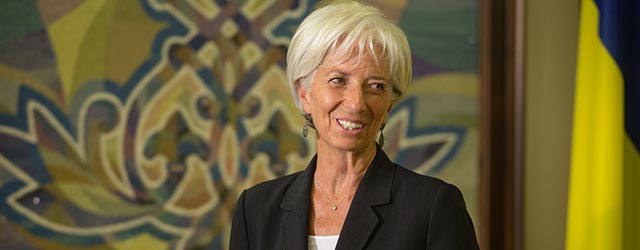The International Monetary Fund decided last month to alter its long-standing policy of not lending to countries with arrears to official creditors—national governments or agencies they sponsor—thereby enabling it to continue lending to Ukraine should it fail to repay on time a $3 billion bond due to Russia.

Disagreement between Kiev and Moscow over how to restructure the loan meant that, under the old rules the Kremlin could have acted as a holdout creditor to prevent the Washington-based agency from proceeding with its own restructuring and lending program to Ukraine.
Although the timing of this change in policy is clearly linked to the dispute between Russia and Ukraine, Hugh Bredenkamp, deputy director of the IMF’s Strategy and Policy Review department, notes that the fund has been reviewing its policy on lending into arrears since early 2013. He portrays it as a broad policy decision.
Since 1989, the IMF has affirmed its right to lend to countries in arrears to private creditors. This new policy extends that right, enabling the fund to lend to nations that are in arrears to sovereign lenders.
“In the short term, clearly it is a way to allow the IMF to continue its Ukrainian program,” observes Andrea Montanino, director of the Atlantic Council’s Global Business and Economic Program and a former executive director at the IMF. “It provides greater flexibility,” he notes.
But he thinks that the decision should also “be welcomed for its long-term implications, especially on how the IMF deals with major actors in bilateral loans that have emerged in recent years.” He points out that China has lent close to $90 billion to Latin American countries and $56 billion to Africa over the past decade.
“I think you cannot allow one country to veto the possibility of the IMF providing financing to other countries,” says Montanino. But he also believes “China and other major lenders need a stronger voice in the IMF to ensure that they act more responsibly within a framework of global economic governance.”



